Executive Summary. For underground contractors the differing site conditions (“DSC”) clause can be a savior, or a killer. Know what it says before you bid the job – it has a direct effect on your cost estimate.
What is a differing site conditions clause? This is contract language addressing a physical condition discovered by the Contractor during performance of the work that was not adequately described in the Contract Documents prior to the bid.
Some examples could include (and have, in my career):
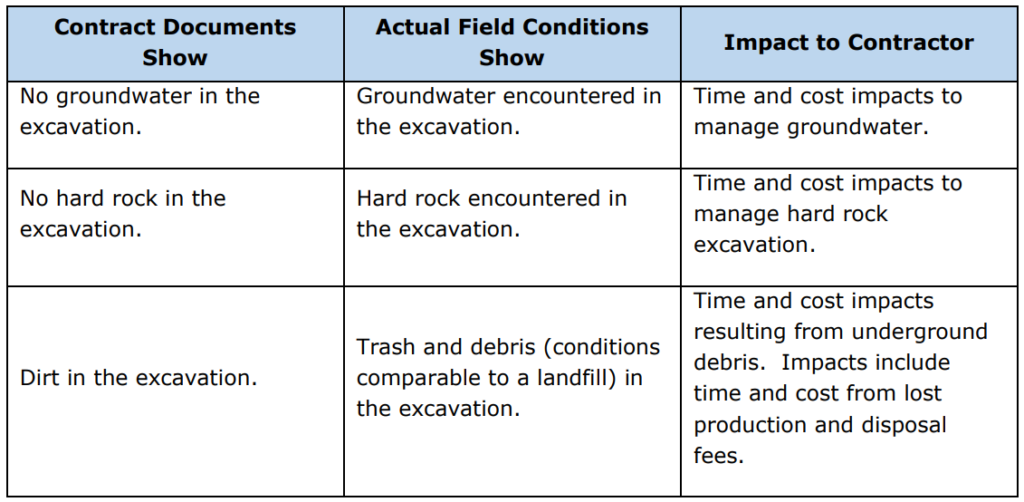
The history of the DSC clause. Early in the 20th century, the federal government realized that they were overpaying on bid day for potential differing site conditions. This meant that if the drawings showed that pipe would be installed in soft dirt, but that rock showed up out of nowhere, the Contractor was going to have to eat this “changed condition” in its entirety. So back then, at bid time, the Contractors typically added in an amount of money to cover this risk. The war room/bid room discussion went like this: “well, the borings show that we’re only going to hit a low blow count silty sand everywhere, but we were near there five years ago and it was blue rock. Add in $100,000 to deal with that section of drain line between stations 12+00 to 24+00…if we hit rock we’re covered, if we don’t hit it we pocket the $100k.”
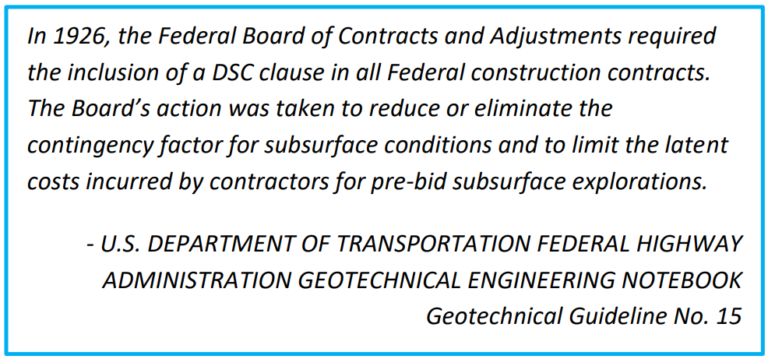
Why do I care about a DSC now, it’s the 21st century? Not all contracts are the same. If you encounter a DSC in the field, this event may or may not be compensable in time and/or cost. Although a vast majority of public contracts have favorable language to the Contractor in allowing time and cost relief, not all do. And who knows what your private contracts say. Most public contracts have something like this, where the Contractor is protected in time and cost by the Contract:
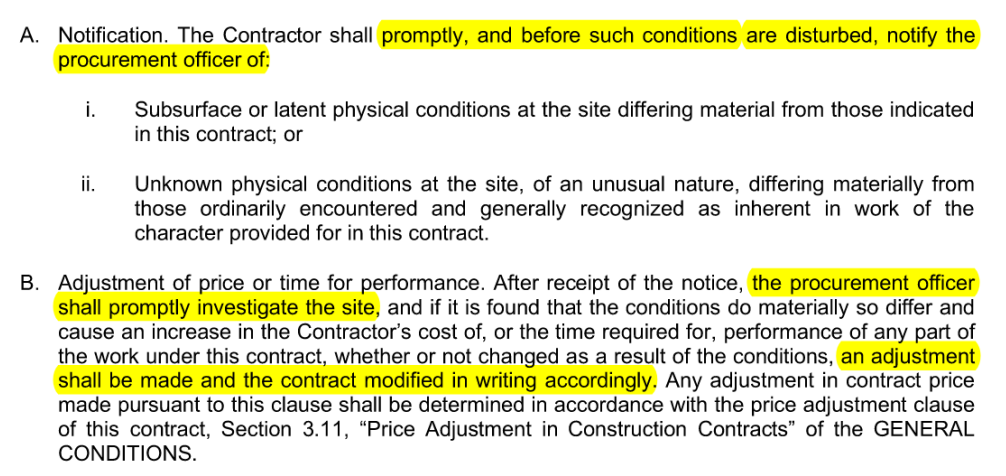
The above language is good – it allows the Contractor to call out this changed condition, the Owner is then required to investigate the matter and then adjust the Contract accordingly in “price or time”. Now flip the coin. The language below was taken from a different public entity’s general terms and conditions. Notice that the risk of DSCs is “wholly” on the Contractor:

My story. As an underground contractor for 26 years and a claims consultant and owner’s representative for almost 10 years, this issue is not uncommon. A geotechnical engineer’s role of defining soil conditions is very difficult. And a successful contractor will expose any minor differences between the Contract and
in-situ conditions.

My old boss from the late 1990s used to joke about silty sand and sandy silt – he was a master of arguing the DSC. I guess some of that must have rolled off onto me as our firm deals with this quite a bit as well, both in defending an owner and as fighting for the Contractor.
Work safe!




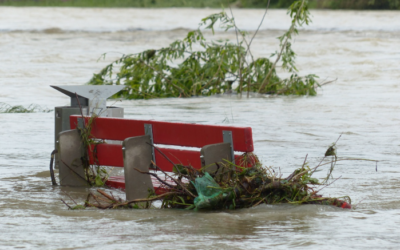
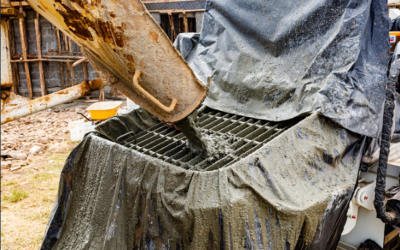
0 Comments